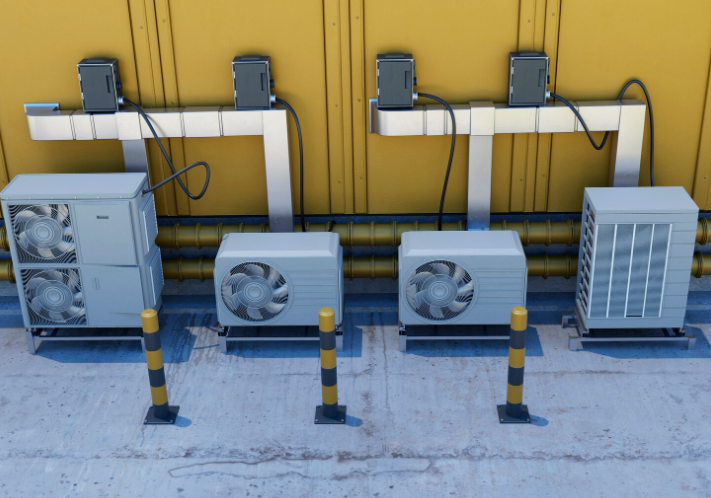Choosing the Right HVAC System for Your Home: What to Consider

Investing in a new HVAC system is one of the biggest decisions homeowners make. The right choice ensures year-round comfort, manageable energy bills, and fewer breakdowns. The wrong choice, however, can leave you paying more for less comfort. From sizing and efficiency to advanced features and installation, there are several factors that should guide your decision.
Factor 1 – Sizing Your System Correctly
Bigger isn’t always better when it comes to HVAC. A system that’s too large will cycle on and off frequently, wasting energy and wearing out parts prematurely. A unit that’s too small won’t keep up on the hottest or coldest days, leaving your home uncomfortable.
Proper sizing requires a professional load calculation that considers:
- Square footage of your home
- Insulation levels and window efficiency
- Local climate conditions
- Number of occupants and lifestyle patterns
Getting this step right is critical, don’t just replace your old unit with the same size. Homes change over time, and so do efficiency standards. This is where working with a trusted professional matters. If you’re in the GTA, check out how to choose the best HVAC contractor in Toronto for guidance on finding the right expert.
Not sure what size air conditioner is right for your home?
Use our free AC Calculator & Quote Wizard to get a personalized recommendation in minutes. Try It Now.
Factor 2 – Energy Efficiency and Operating Costs
One of the biggest factors homeowners overlook when choosing a new HVAC system is long-term efficiency. While the upfront price tag is important, the system’s efficiency will determine how much you pay to run it every single month.
Understanding efficiency ratings:
- AFUE (Annual Fuel Utilization Efficiency): Measures how much of the fuel becomes usable heat. A furnace with 95% AFUE converts 95 cents of every fuel dollar into heat.
- SEER2 (Seasonal Energy Efficiency Ratio): Applies to air conditioners and heat pumps. Higher SEER2 = less electricity used for the same cooling. Many modern systems reach 15–20+.
- HSPF2 (Heating Seasonal Performance Factor): Used for heat pumps to measure heating efficiency across a season.
Why efficiency matters beyond the label:
- Poorly sealed ductwork can waste up to 30% of conditioned air, even with a high-efficiency unit.
- Weak insulation forces your system to run longer.
- Outdated thermostats create unnecessary cycles, wasting energy.
This means efficiency is a whole-home approach, not just about the equipment itself.
Balancing cost and savings:
High-efficiency systems often cost more upfront but lower monthly bills, sometimes saving thousands over the lifespan of the unit. They also tend to run more quietly and improve indoor comfort. Rebates and incentives can make these systems even more attractive.
For additional practical tips, check out 10 easy ways to save energy at home backed by HVAC pros. Combining smart habits with an efficient system gives you the best of both worlds.
Factor 3 – Comfort Features and Technology
Modern HVAC systems are designed to do more than heat and cool, they create a healthier, quieter, and smarter home environment.
- Variable-speed blowers: Deliver even temperatures and quieter operation by adjusting airflow gradually.
- Zoning systems: Divide your home into separate comfort zones so you don’t waste energy conditioning unused spaces.
- Smart thermostats: Learn your schedule, optimize performance, and provide energy reports. Many integrate with smartphones and smart homes.
- Air quality upgrades: Advanced filters remove allergens, while humidity control ensures air isn’t too dry in winter or too sticky in summer.
- Noise reduction: Quieter compressors and blowers mean less disruption at home.
By looking beyond basic heating and cooling, you can choose a system that makes your home healthier, more efficient, and far more comfortable.
Factor 4 – System Type and Fuel Source
The type of system you install will determine long-term comfort and cost. Here are the main options:
- Furnaces: Best for cold climates. Natural gas furnaces deliver strong, consistent heat and work well with central AC.
- Air Conditioners: Provide efficient, whole-home cooling through ducts. Modern models use less energy and pair with furnaces.
- Heat pumps: Both heat and cool by moving heat instead of creating it. Newer cold-climate models work well even in Canadian winters and are eco-friendly.
- Hybrid systems: Combine a heat pump with a furnace. The heat pump runs in mild weather, the furnace takes over in extreme cold, balancing cost and reliability.
What to consider:
- Local climate and average winter temperatures
- Access to natural gas vs reliance on electricity
- Efficiency goals and environmental impact
Whether your home already has ducts or requires a ductless option
Factor 5 – Installation and Long-Term Service
Even the best equipment will fail if it’s installed poorly. Improper installation can slash efficiency by up to 30% and cause recurring repairs.
Why professional installation matters:
- Correct load sizing through detailed calculations
- Balanced airflow and ductwork sealing
- Safe gas, electrical, and refrigerant connections
- Optimized thermostat and control settings
The role of long-term service:
Like a car, HVAC systems need regular tune-ups. Skipping maintenance shortens lifespan and increases the chance of breakdowns in peak season. Annual service should include:
- Cleaning burners, coils, and filters
- Checking refrigerant levels and airflow
- Inspecting electrical safety controls
- Calibrating thermostats
By combining quality installation with routine service, you protect your investment and enjoy reliable comfort for years.
Choosing the right HVAC system isn’t just about picking a furnace or AC, it’s about making a decision that balances comfort, efficiency, and long-term peace of mind. By understanding system size, efficiency, comfort features, fuel types, and the importance of professional installation, you’ll be well-prepared to make the best choice for your home.
